
Support Beyond the Check
This one-pager outlines concrete steps funders can take today in their organization’s culture, structure, and leadership to support their grant partners beyond the check
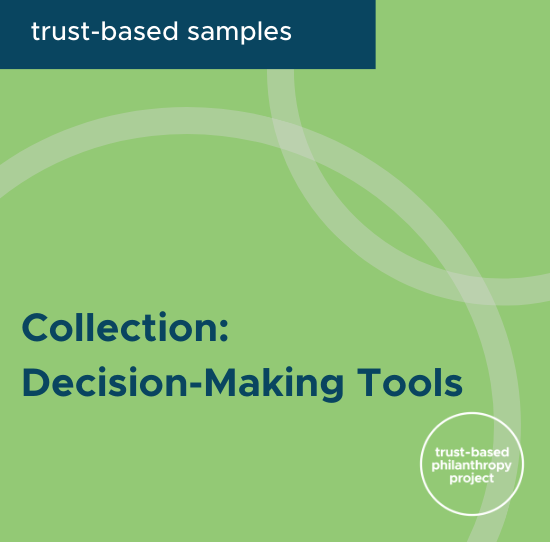
Sample Collection: Decision-Making Tools
Check out these trust-based decision-making tools designed to support the grantmaking decision process

Trustee Perspectives on Trust-Based Philanthropy
Since 2010, bi3, the philanthropic initiative of Bethesda, Inc., has invested $50 million to transform and enhance health in Greater Cincinnati. In the following videos, Bethesda Inc. Trustees Dr. Robert Collins, Ellen Katz, and Jill Miller, share about the impact of trust-based philanthropy and the role boards play in supporting their organizations on their trust-based journey.

Sample Collection: Support Beyond the Check
These examples demonstrate structured ways that funders can provide support beyond the check.
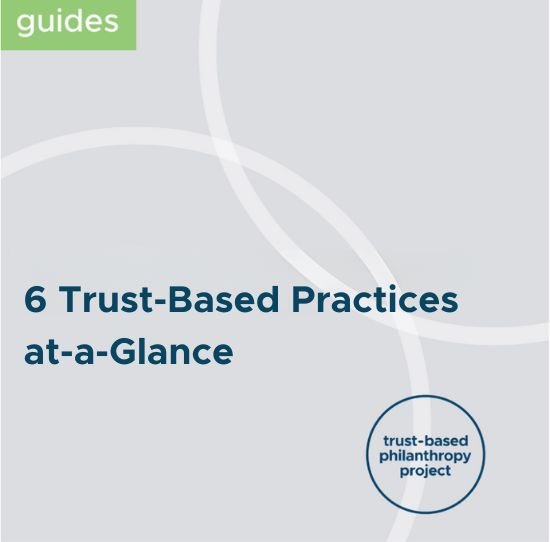
6 Trust-Based Practices at-a-Glance
This guide provides a 2-page overview of the trust-based philanthropy approach, including the six practices of trust-based grantmaking.

Trust-Based Philanthropy vs. Conventional Grantmaking
While two institutions may share the same mission, how they carry it out can vary widely. Trust-based philanthropy flips the script on conventional philanthropy by promoting a culture of sharing power, centering relationships, and fostering mutual accountability. While the two approaches are not always diametrically opposed, this overview highlights some key areas of distinction wherein trust-based philanthropy reimagines conventional norms.
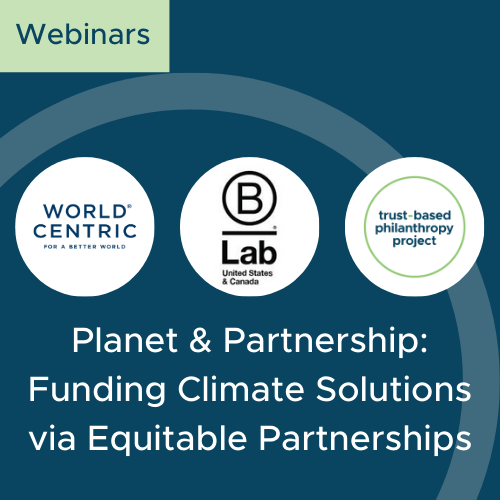
Planet & Partnership: Funding Climate Solutions via Equitable Partnerships
For corporate philanthropy to be more equitable and impactful, we need to examine and reimagine the way we do our work to better center the experiences of leaders who are on the frontlines of the issues we seek to address. As businesses and funders, we can accelerate climate solutions that advance equity while at the same time shifting power dynamics within traditional philanthropy, and building authentic and mutually accountable relationships with frontline and local communities. How do we build these relationships?
In this webinar, the team at The Trust Based Philanthropy Project will share a framework for more equitable and effective grantmaking partnerships as we hear from community partners and B Corp funders who are operationalizing trust-based practices.

Enabling Trust-Based Practices: 4 Tips for Grants Management Systems
This guide provides specific suggestions for a key element of trust-based structures: The grants management system. It is designed to provide a set of concrete features, integrations, and accessibility standards that you can use to advance your trust-based operations.
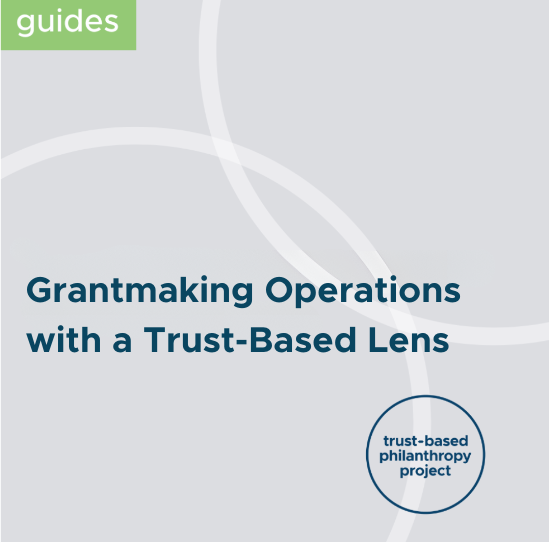
Grantmaking Operations with a Trust-Based Lens
This guide draws on the experiences of funders who have applied a trust-based lens to their grantmaking operations to identify the key ways that grantmaking practitioners can operationalize their grantmaking processes in ways that center the needs of their grant partners.
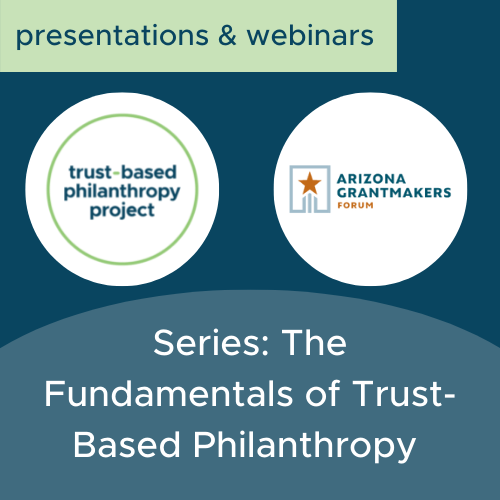
Series: The Fundamentals of Trust-Based Philanthropy
This two-part series dives into the six practices of trust-based philanthropy and the culture, structures, and leadership necessary for funders to bridge the values-to-practice gap and embody a trust-based approach.

Roadmap to Trust-Based Transformation
This one-pager provides a snapshot of some of the key milestones for trust-based transformation and how they connect to your organizational culture, structures, leadership, and practices.

Trust-Based Philanthropy & Its Misconceptions
As a guest on the Do Your Good podcast, Shaady Salehi breaks down trust-based philanthropy’s grounding in relational approaches to grantmaking, including orientations to learning and evaluation that mitigate power dynamics and account for complex ecosystems of change.
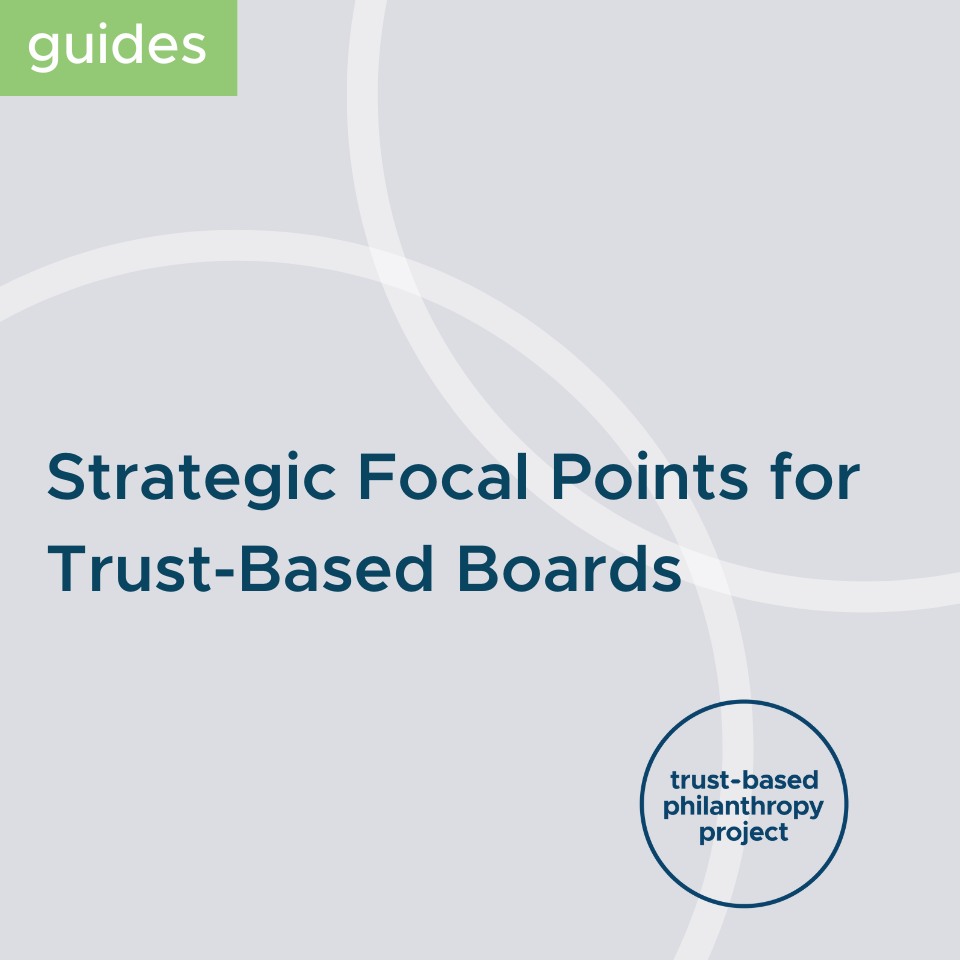
Strategic Focal Points for Trust-Based Boards
This guide outlines the four, non-mutually exclusive focal points—learning, strategy, grantmaking, and imagination—in which foundation boards can direct their time and attention when stewarding trust-based organizations.
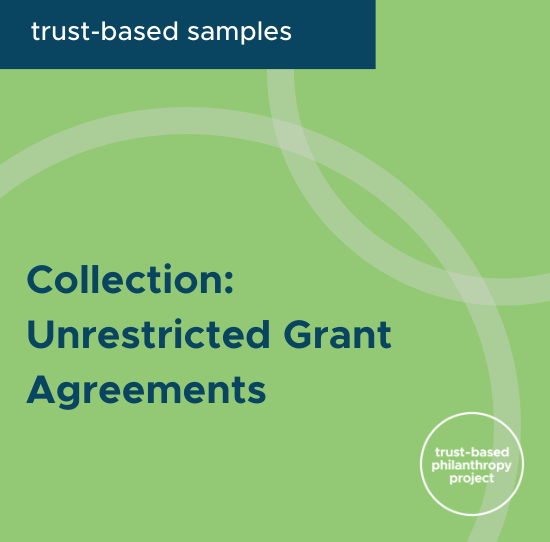
Sample Collection: Unrestricted Grant Agreements
These sample unrestricted grant agreements from the North Star Fund, the Dorot Foundation, and the General Services Foundation provide language that focus on reducing the burden on grantees through more streamlined processes.
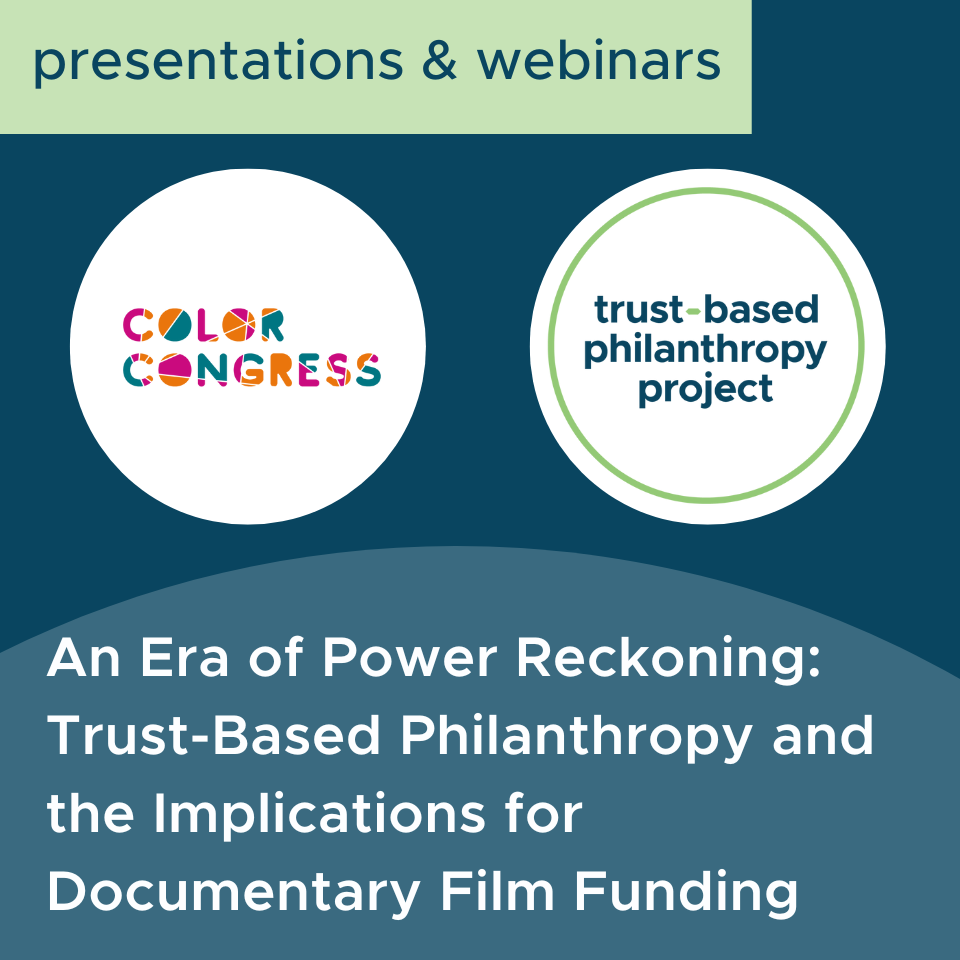
An Era of Power Reckoning: Trust-Based Philanthropy and the Implications for Documentary Film Funding
How does trust-based philanthropy apply to film and arts funding? In this webinar, featuring the latest research on the state of film funding, three funders share how they are implementing trust-based practices and what they're learning along the way.
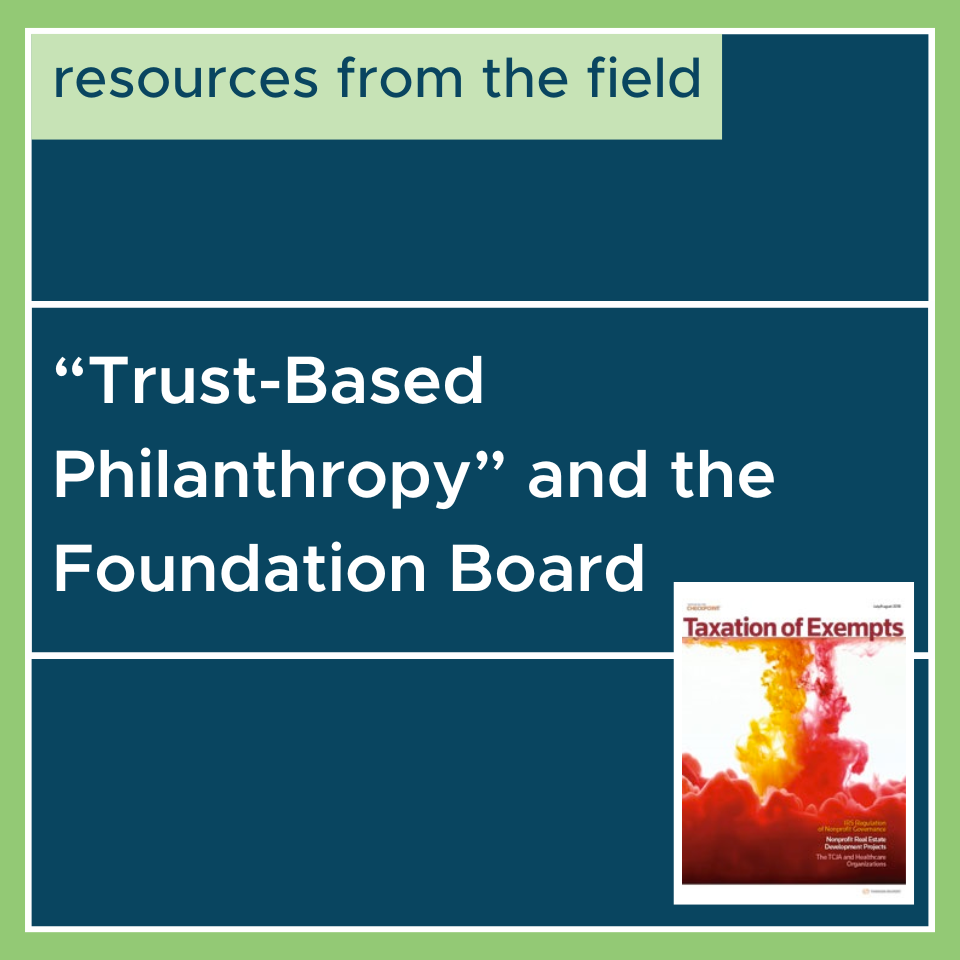
“Trust-Based Philanthropy” and the Foundation Board
This article from the March/April 2021 issue of Taxation of Exempts disentangles many of the long-held connections between restrictive funding practices and legal obligations, from due diligence to unrestricted funding and grant reporting.

Participatory Grantmaking and Trust-Based Philanthropy
This webinar explores what it takes to build trust within a participatory framework, and how to bolster the strengths of trust-based philanthropy and participatory grantmaking—while also mitigating their tensions and challenges.
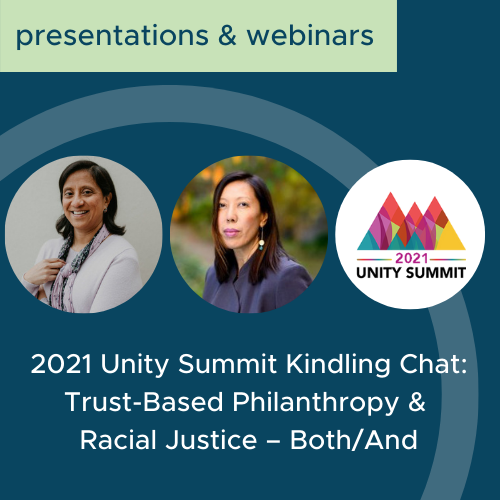
Trust-Based Philanthropy & Racial Justice – Both/And
In this breakout conversation at Unity Summit 2021, Pia Infante of the Whitman Institute and Brenda Solorzano of Headwaters Foundation discuss the deep links between trust-based philanthropy and embodying values of equity and racial justice.

Will trust-based philanthropy solve the funder to nonprofit power imbalance?
Shaady Salehi joins Fluxx co-founder Kerrin Mitchell for a conversation on Untapped Philanthropy, exploring how to reorient our perspectives on impact and rigor in a trust-based approach to grantmaking.
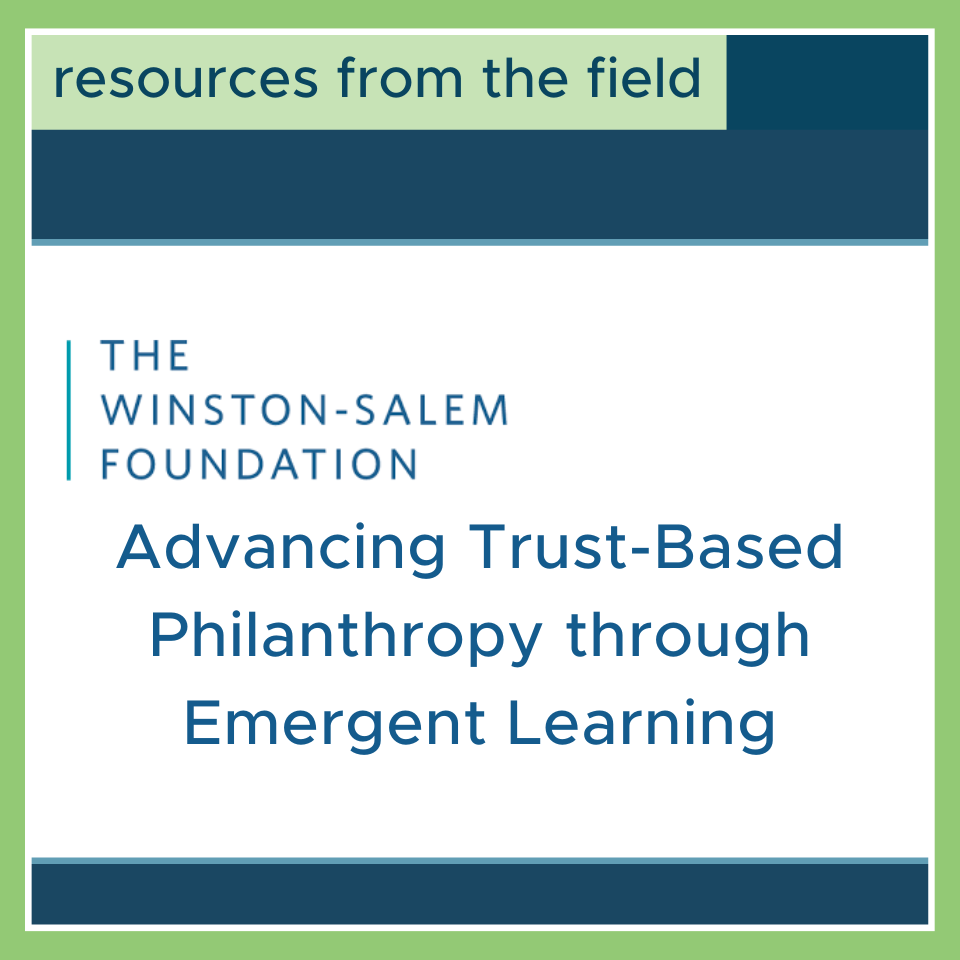
Advancing Trust-Based Philanthropy through Emergent Learning
This report charts the Winston-Salem Foundation's journey with both emergent learning and trust-based, where developing trusting relationships with grantees through dialogue facilitated mutual learning.
